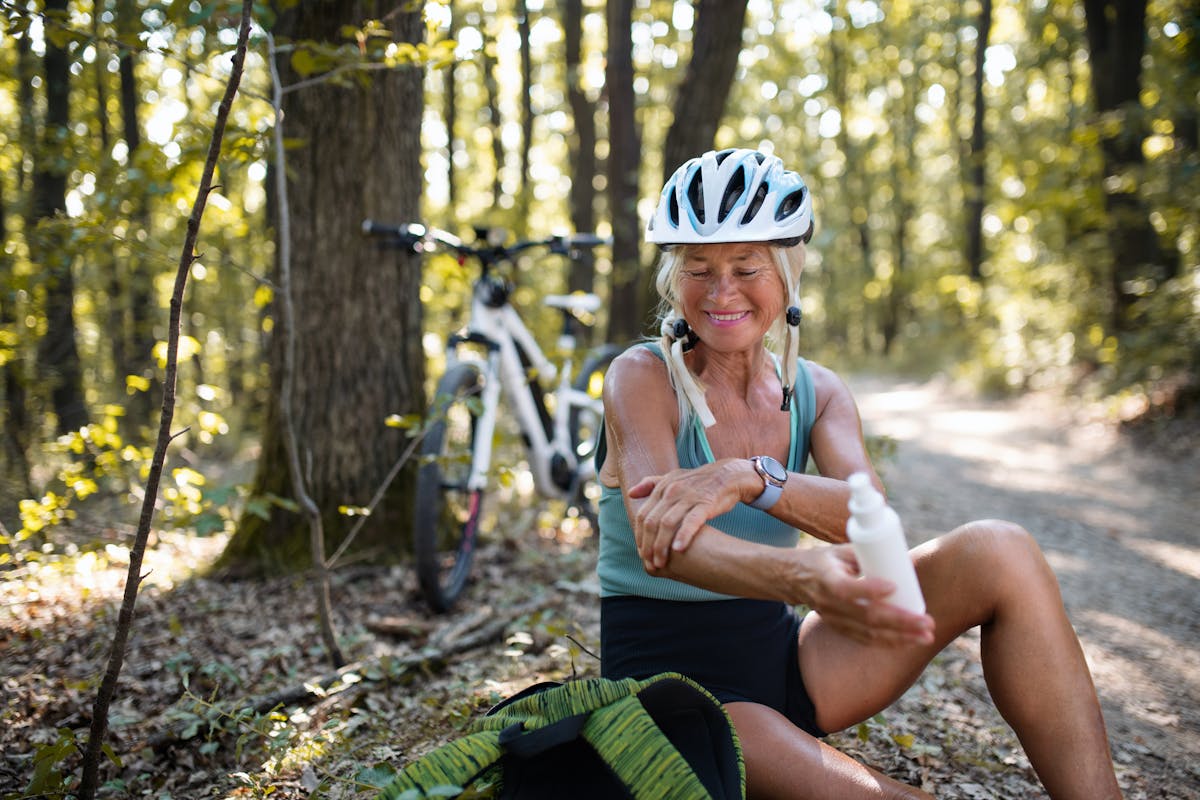Tips to Have a Safe Summer

Most families look forward all year long to the carefree days of summer. Children and grandchildren are out of school, and the warm weather makes it more enjoyable to spend time outdoors. That’s especially true if you live in a climate where winters are cold and snowy.
For some people, gardening is a favorite summer pastime. Others like swimming or taking nature walks. However you and your family choose to spend the warmer months of the year, your body, mind, and spirit will reap the rewards of time spent communing with nature.
As we head into summer, however, it’s important to be informed about potential safety concerns, especially if you have senior loved ones who join your outdoor adventures.
Seniors and Heat Sensitivity
Our older loved ones are often more sensitive to the heat than younger family members. And high temperatures can be deadly. Some seniors have medical conditions, such as heart disease or chronic obstructive pulmonary disease, that can worsen when it’s humid and hot. For other elders, heat sensitivity is a side effect of a medication. Diuretics and beta blockers, like hydrochlorothiazide and propranolol, are two examples of medications that can cause increased susceptibility to heat.
Another heat-related concern is skin sensitivity. As we age, our skin typically becomes thinner and more fragile. That can put older adults at higher risk for sunburn or sun poisoning. Skin cancer is also more common among seniors. It’s something to protect against all year, but especially in the summer.
Fortunately, there are proactive measures people can take to stay safe when the mercury rises.
Stay Safe When the Mercury Sizzles
- Stay hydrated: When it’s hot and humid outside, the body can have a tough time adjusting, especially to the heat index. This can put people of all ages at higher risk for dehydration. While it’s usually a good idea to ask your doctor for advice on how much water you should consume, the standard recommendation is eight glasses a day. If you or a family member doesn’t like the taste of water, try adding lemon, cucumber, or berries to give it flavor. Smart food choices can also pump up hydration. Melons, berries, cucumber, leafy greens, celery, apples, and tomatoes all have a high water content.
- Apply sunscreen: Despite the warnings, people often skip or skimp on this one. Many older adults grew up not wearing sunscreen at all and forget to apply it or don’t think it’s necessary. Sunscreen use—or lack thereof—is linked to rates of skin cancer. According to research published in the Canadian Medical Association Journal, the use of sunscreen reduces the incidences of melanoma and non-melanoma types of skin cancer. Whenever you will be spending time outdoors or riding in a car, you should apply sunscreen with an SPF of 30 to 50 and reapply it every two to four hours.
- Cover your face and neck: Not surprisingly, two places where skin cancer often starts are the face and the back of the neck. That’s because people often forget to apply sunscreen there. If you have difficulty getting sunscreen on the back of your ears or neck, try sunscreen in different formats, such as a solid stick or spray. It also helps to wear a hat with a brim wide enough to shield your neck and face.
- Purchase quality sunglasses: While sunglasses are often thought of as a fashion statement, they play an important role in vision health. Sunglasses protect your eyes from the sun’s dangerous rays. Researchers say investing in and faithfully wearing a quality pair of sunglasses can help prevent cataracts and cancerous growths in the eyes. Follow these tips from the American Academy of Ophthalmology to ensure the sunglasses you choose will adequately protect your eyes.
- Use bug spray: No summer safety prevention list would be complete without talking about insects. Bugs are more than just an annoyance to be tolerated during warm weather. Some are carriers of serious diseases, including Lyme disease and West Nile fever. Two good prevention measures to take anytime you go outdoors are applying bug spray and wearing long-sleeved tops and pants. Clothing made of natural fabric can keep you from getting too hot. Also make it a practice to check your clothing, skin, and hair for ticks.
- Invest in an emergency response device: One final suggestion is to purchase a mobile monitoring device. Whether you are a runner who hits the trails at the park alone or a senior who likes to garden, these units allow you to summon help with a simple press of a button.
We hope these tips help you and your loved ones enjoy a safe summer this year!